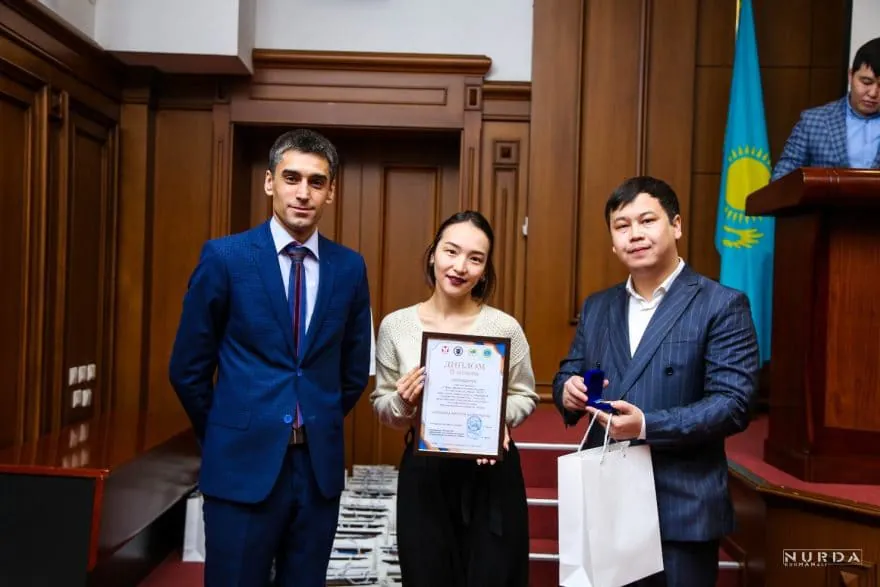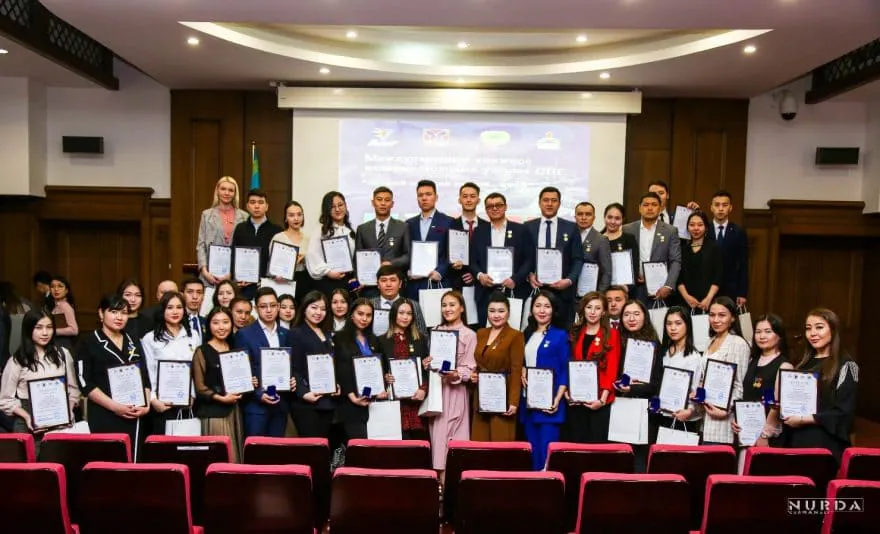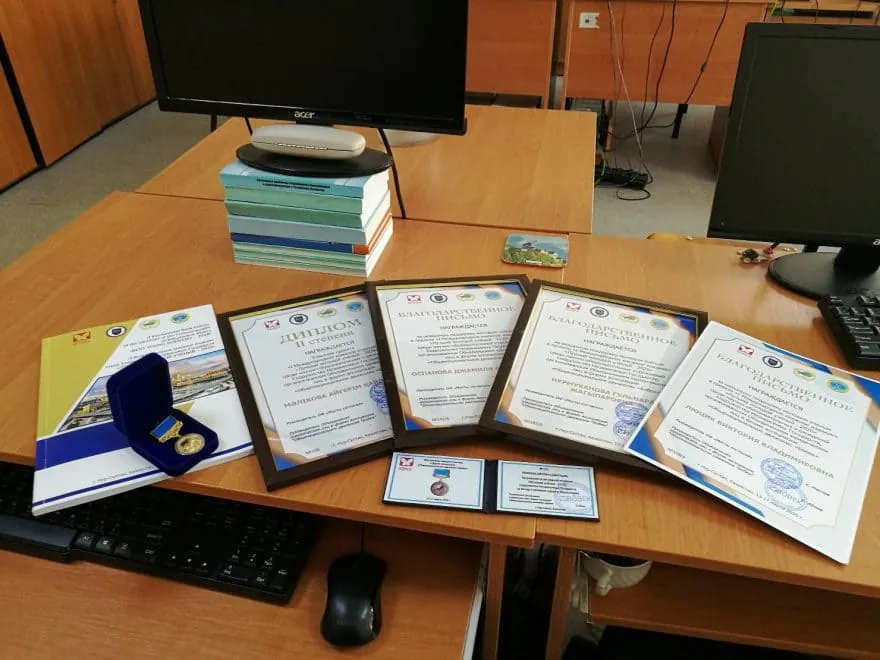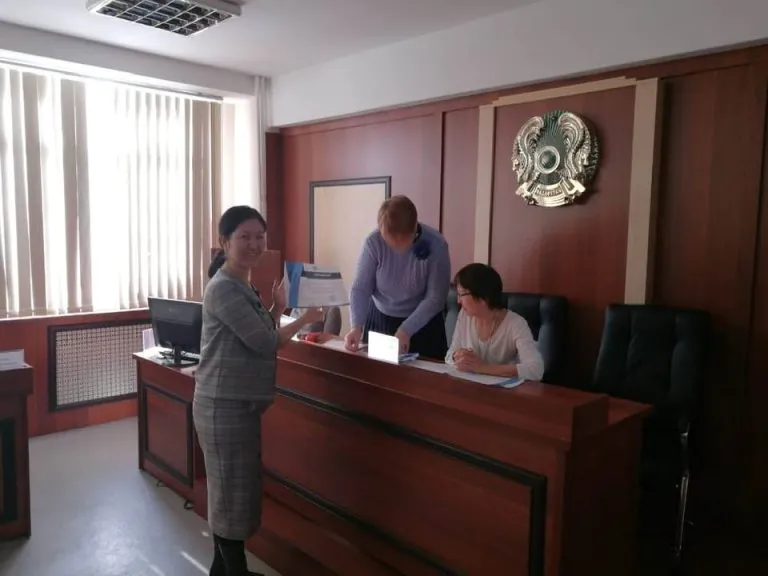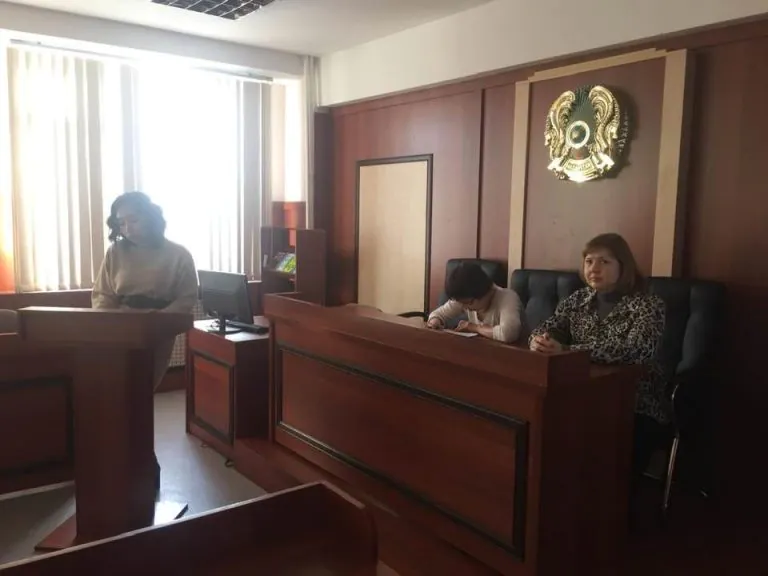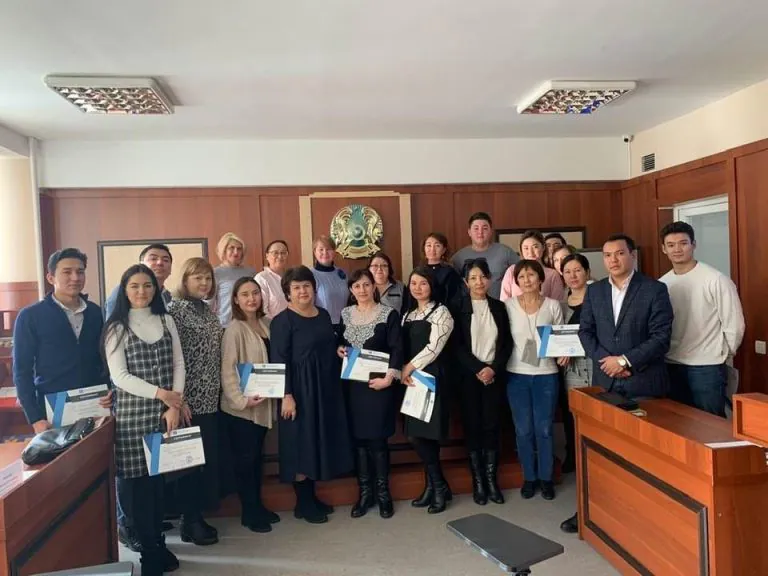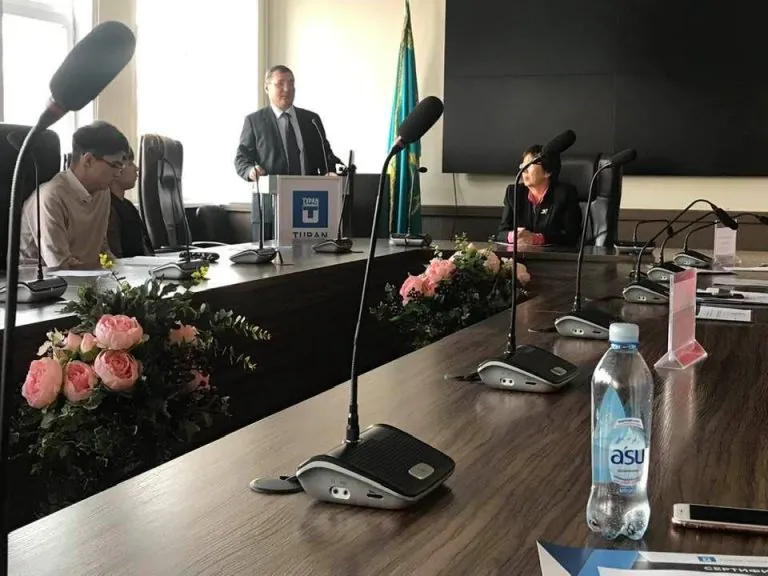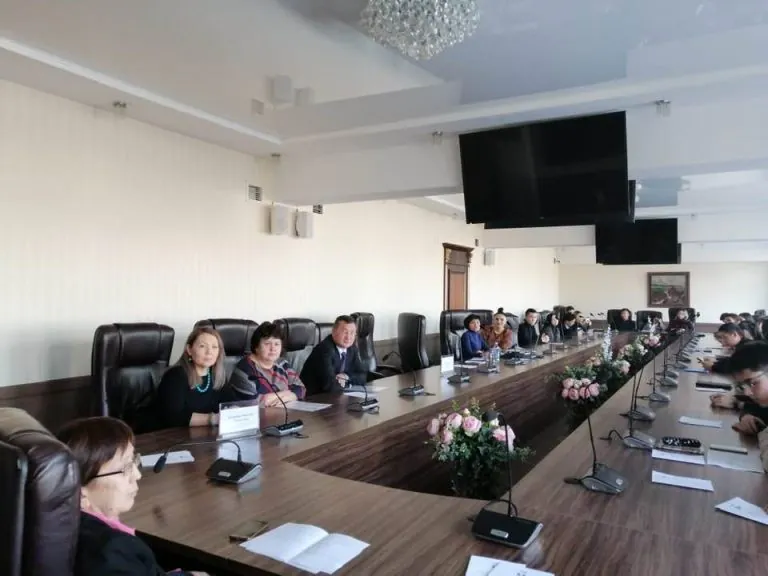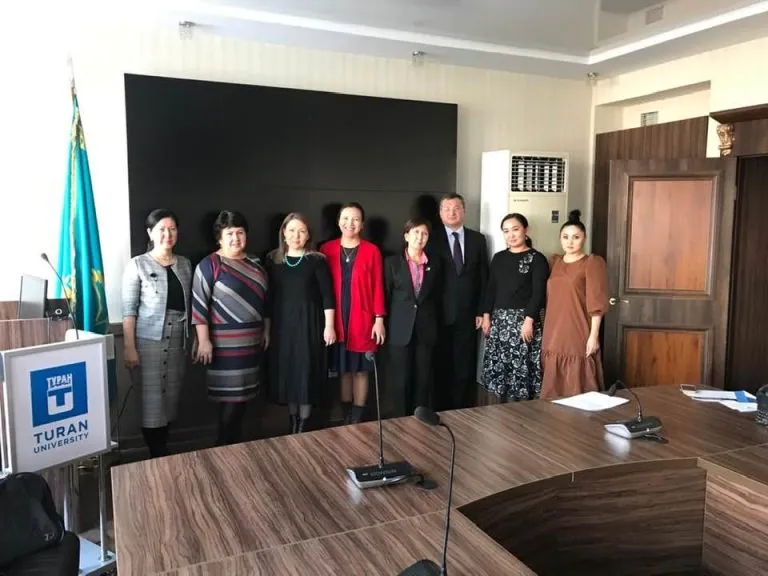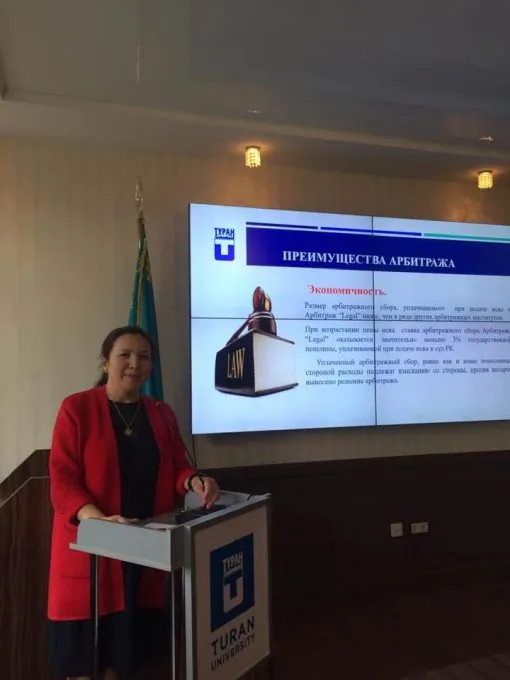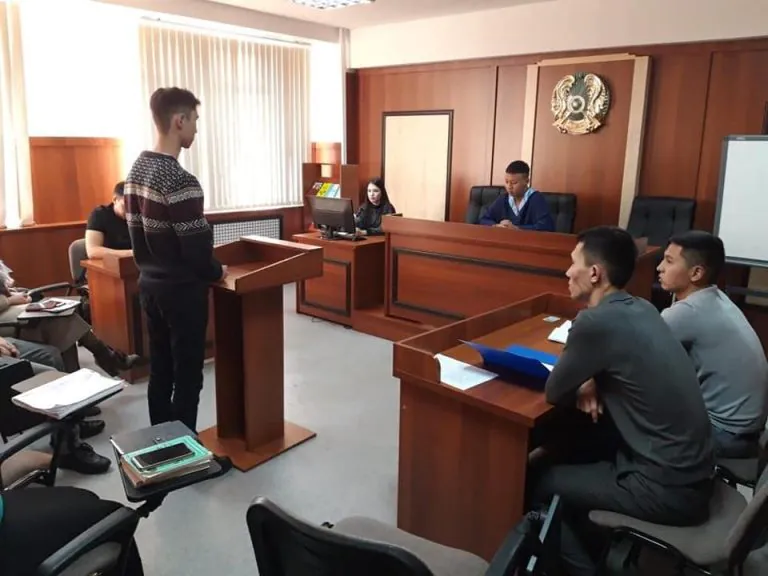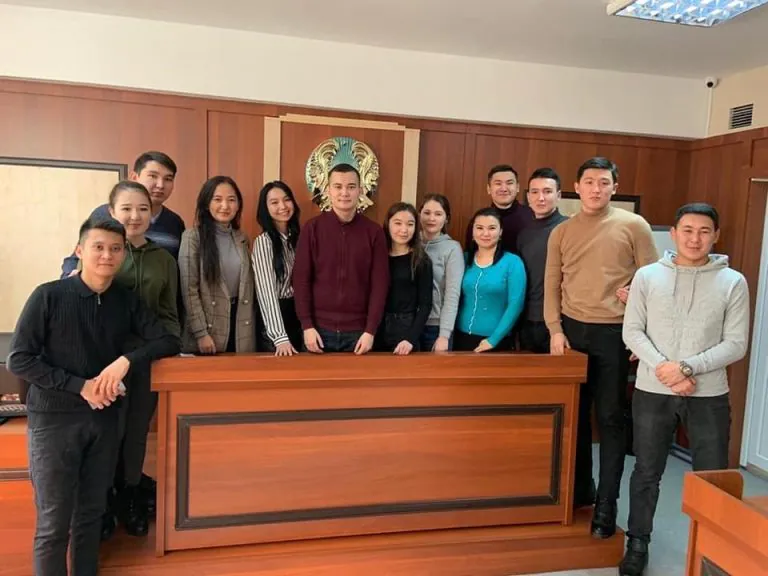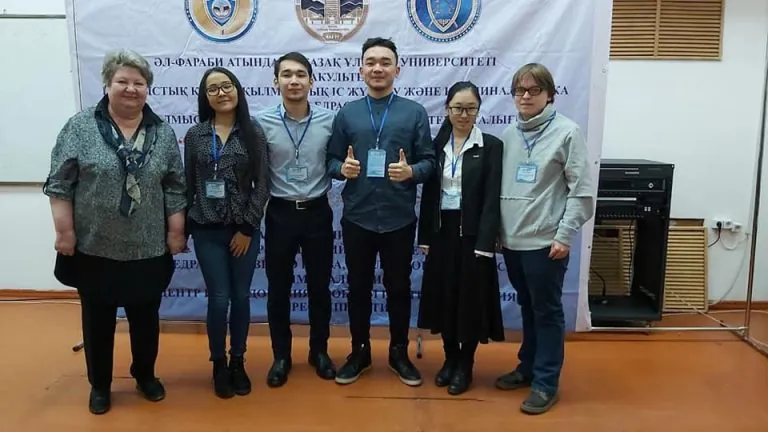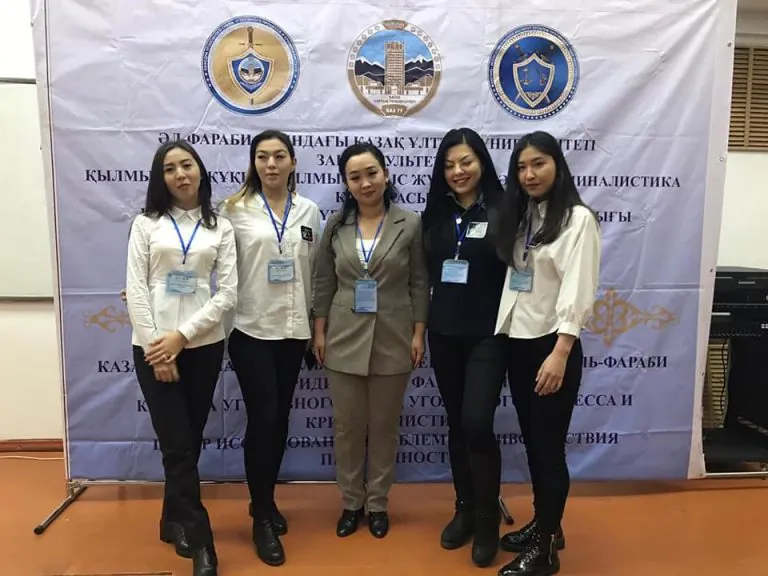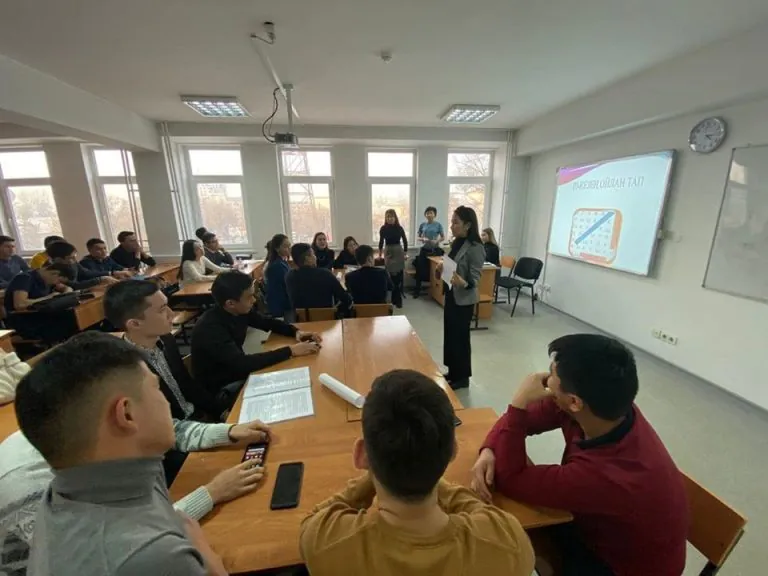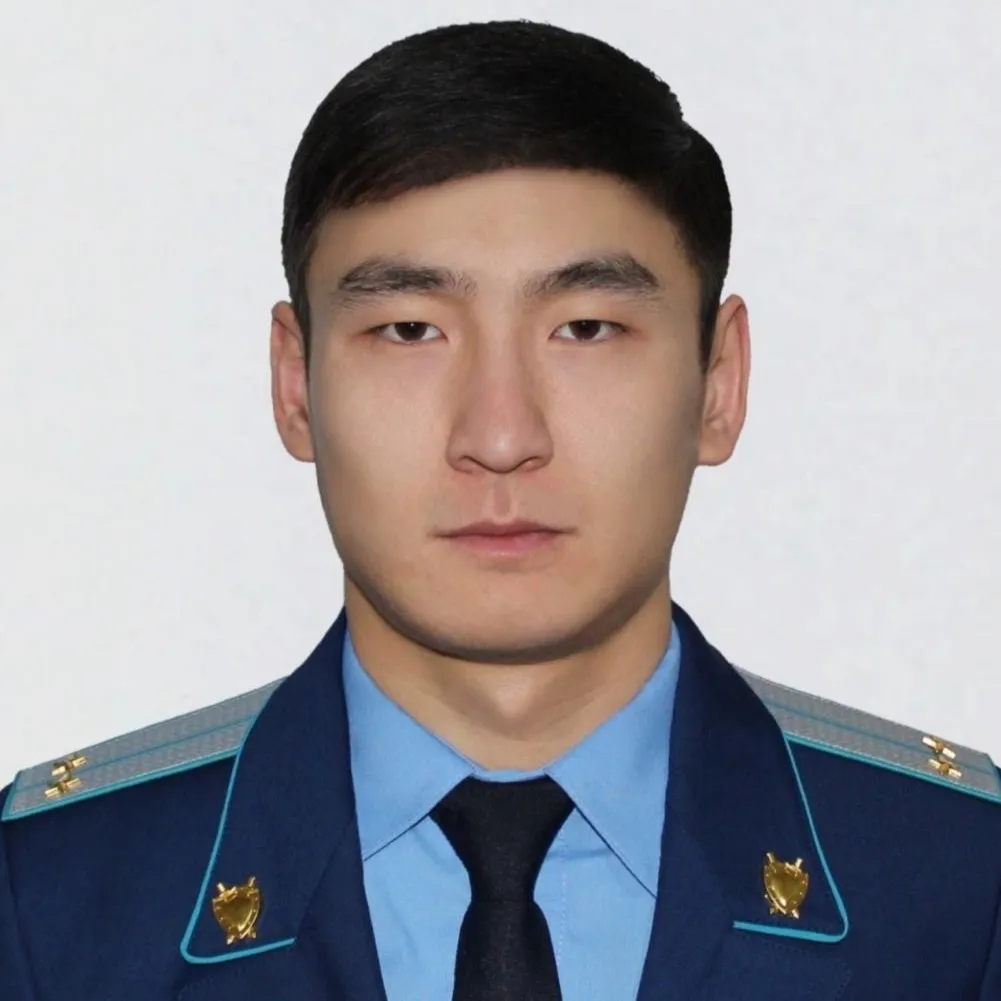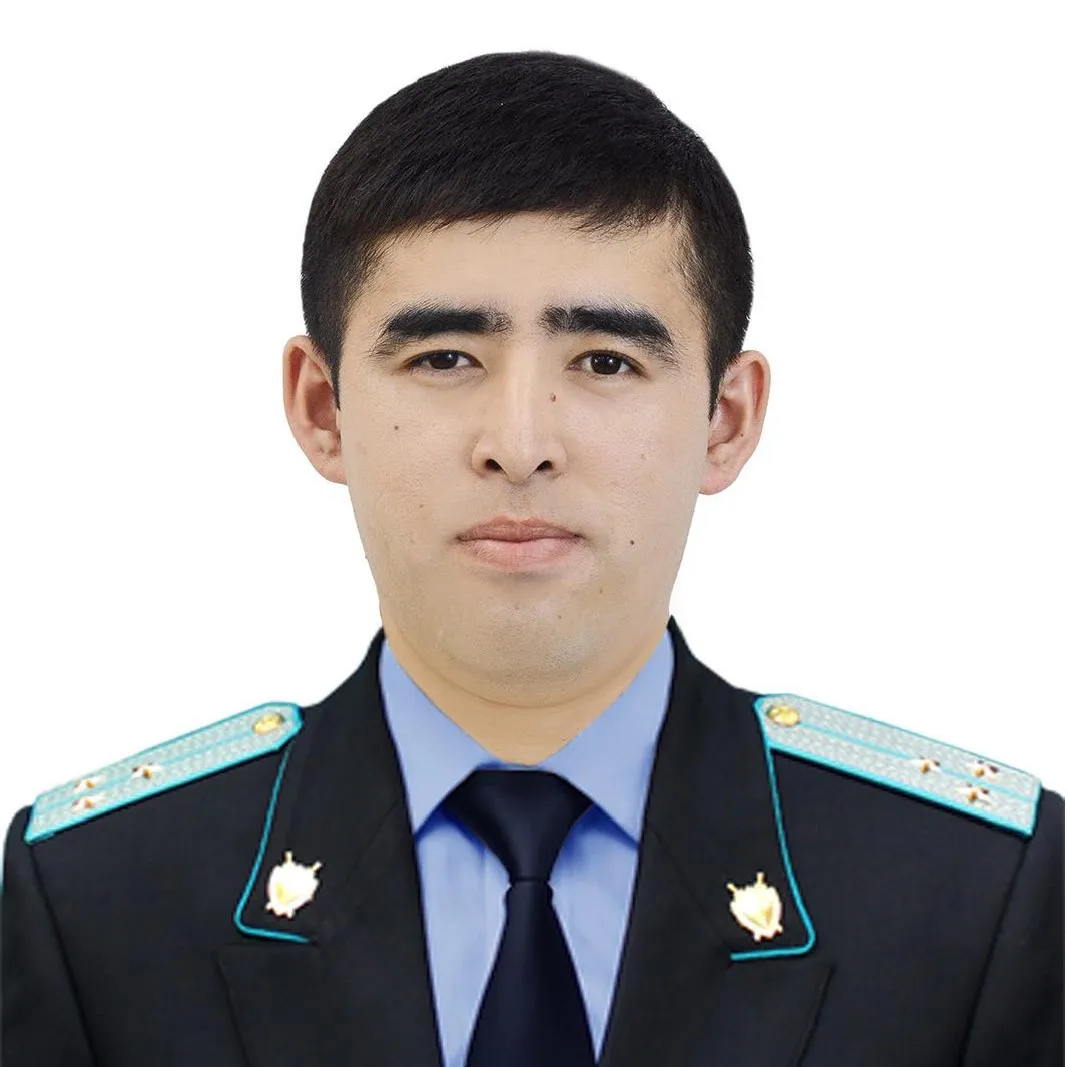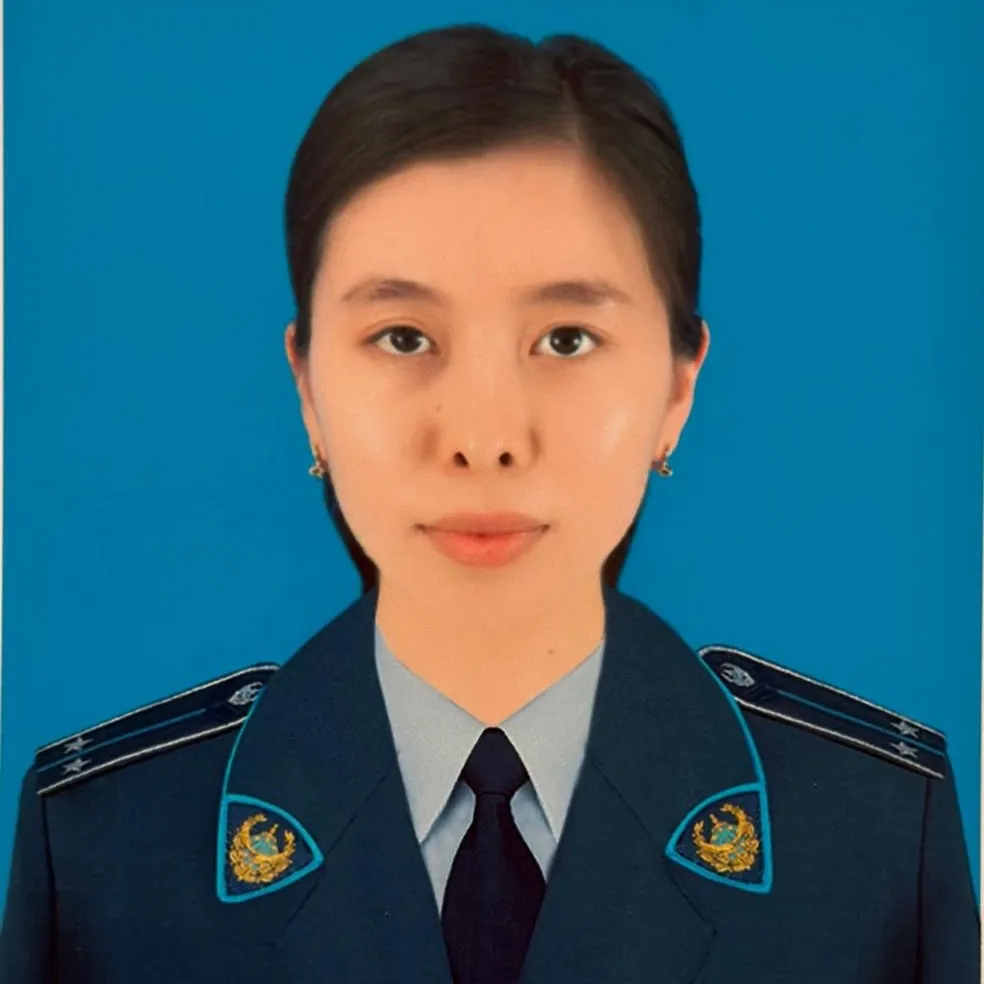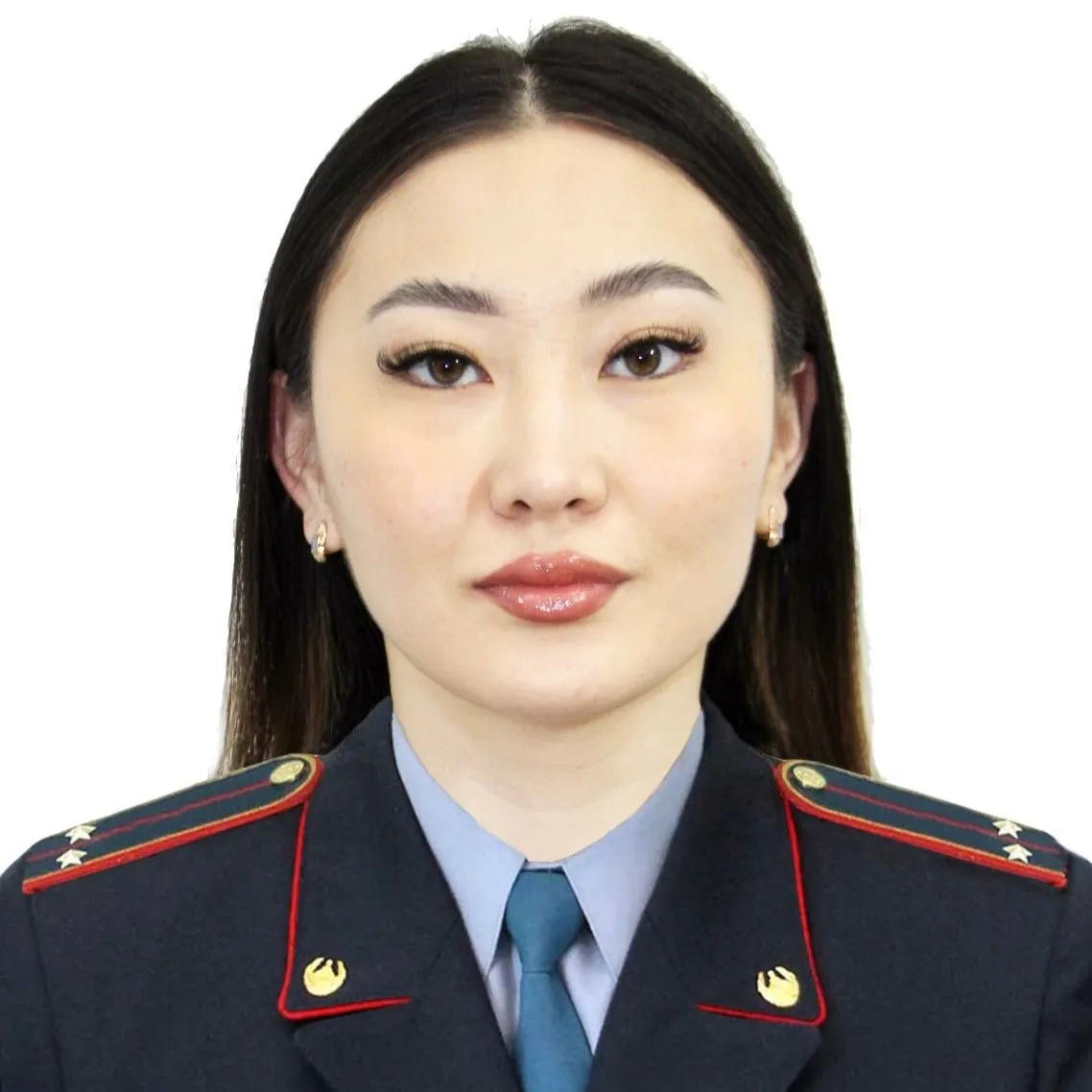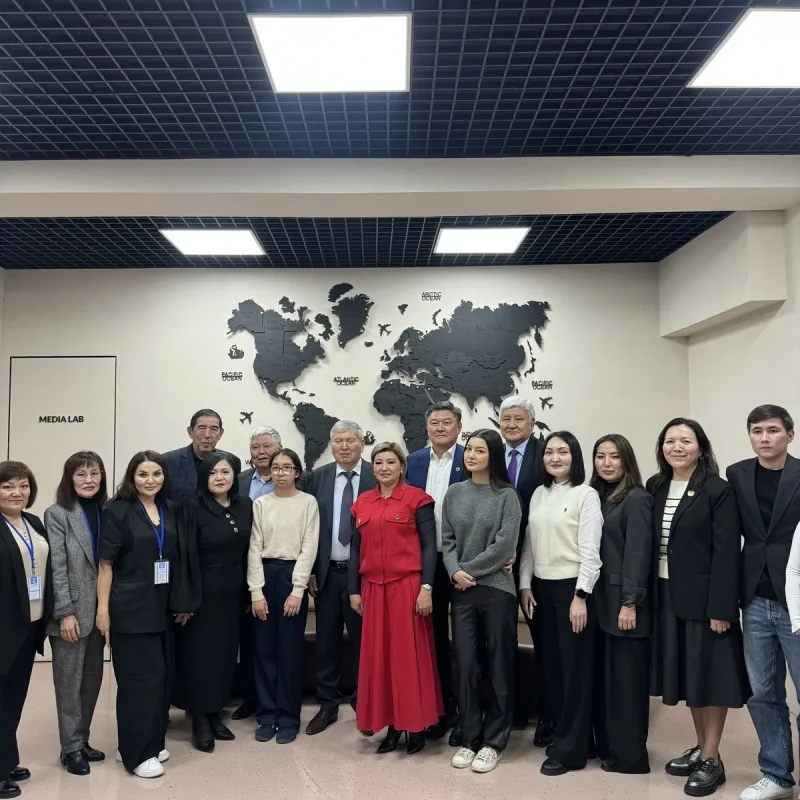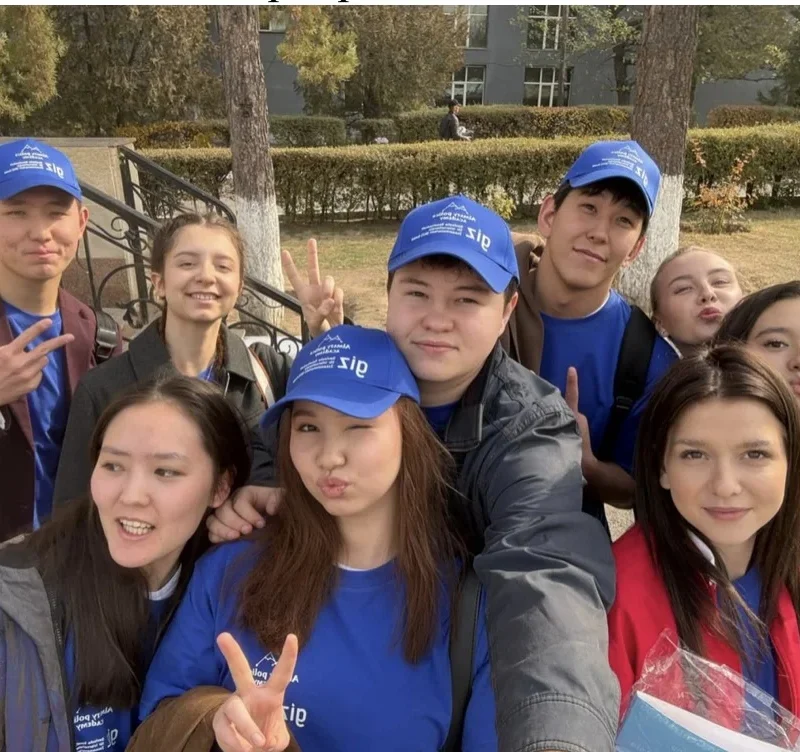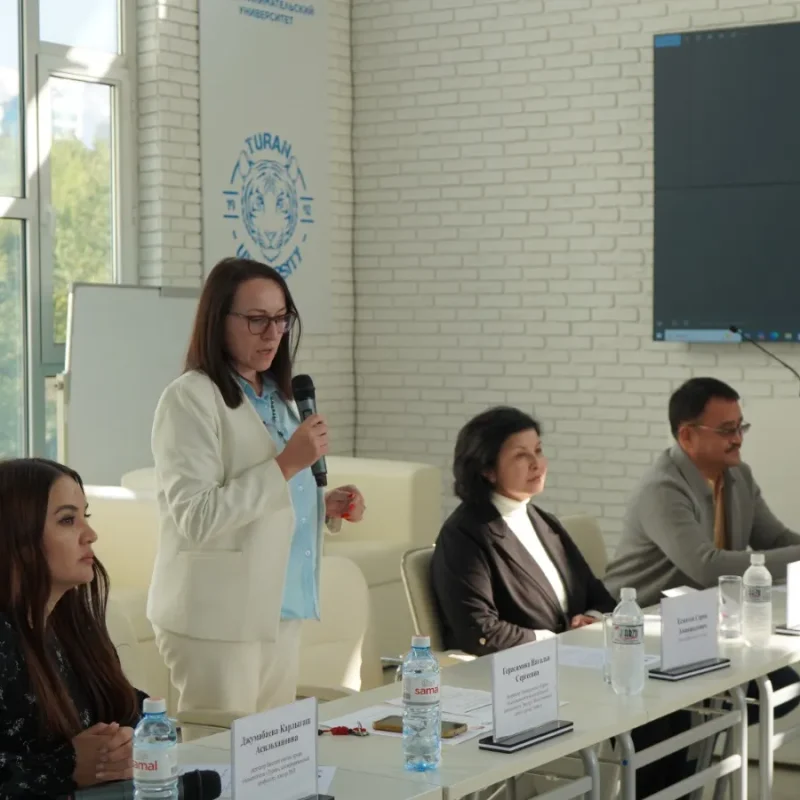Jurisprudence
The best profession for those who want to protect people’s rights
Jurisprudence is a field of study dedicated to the examination of law and legal systems, recognized as one of the most prestigious and rapidly evolving disciplines today.
The “Jurisprudence” program equips students with a deep understanding of legal principles, legislative frameworks, and the ability to apply them effectively. It develops essential skills for legal practice, covering a broad spectrum of legal disciplines, including civil law, criminal law, international law, and human rights. Graduates of this program are trained to analyze and interpret legal and regulatory documents, represent and protect clients’ interests, and ensure legal compliance across various spheres of public life.
Academic degrees: bachelor
Specialty code: 6В04201
UNT elective subjects: World history + Human, society and law.
UNT disciplines (for applicants in a related specialty): Fundamentals of the theory of state and law + Civil law of the Republic of Kazakhstan
Form of education: full-time, full-time with a shortened period of study
Duration of training:
- On the basis of secondary education:
4 years, 3 years (depending on the individual study plan) - On the basis of secondary vocational education:
3 years, 2 years (depending on the correspondence of the related group of the educational program/specialty of the college diploma) - On the basis of higher education:
3 years, 2 years (in accordance with the educational program of the rodman group/specialty of the diploma of the previous education)
- Department of the Agency of the Republic of Kazakhstan for Combating Corruption in Almaty
- Department of the Judicial Administration of the Republic of Kazakhstan in Almaty
- Almaty City Police Department, Ministry of Internal Affairs of the Republic of Kazakhstan
- Almaty Regional Bar Association
- Private Bailiff of the Regional Chamber of Almaty Region
- Private Notary of Almaty (Aralbaeva A.A.)
- Private Bailiff of Almaty (Kozhakhan K.)
- Private Bailiff (Almurzaev T.E.)
- Private Bailiff (Gabbasov A.A.)
- Private Bailiff (Izmaganbetov G.K.)
- Private Notary of Almaty (Elemesova-Khasan A.A.)
- Private Notary of Almaty (Sarsenbayeva A.S.)
- Research Institute of Law at Turan University
- “Turan Consulting” Legal Clinic
- “NUREL” Law Company
- Apparatus of the Akim of Auezov District, Almaty (KSU)
- State Institution “Administrator of Courts for Almaty City, Department for Court Operations under the Supreme Court of the Republic of Kazakhstan (Supreme Court Apparatus)”
- State Institution “Almaly District Police Department, Almaty City, Ministry of Internal Affairs of the Republic of Kazakhstan”
- State Institution “Audit Commission of Almaty City”
- State Enterprise “Almaty City Department of State Revenues”
- State Institution “Almaty City Department of Emergency Situations, Ministry of Emergency Situations of the Republic of Kazakhstan”
- Regional Public Association “Eurasian Union of Lawyers and Mediators ‘Praktikos’”
- “Bekov” LLP
- “Professional” Law Company LLP
- “Jaksylyk Partners” LLP
- “Paritet” Expertise and Evaluation Center LLP
- Center for Expert Evaluation of Working Conditions LLP
- “Zan Alemi” Law Company LLP
- “Firma-BENT” LLP
- “Business Optima” LLP
- “Expert Knowledge and Evaluation” LLP
- “Legalman” LLP

Currently, Turan University has signed international cooperation agreements with foreign universities, including:
- Southern-Russian Institute of Management under the Russian Presidential Academy of National Economy and Public Administration (RANEPA), Faculty of Law – Institute of Law and National Security
- Rostov Branch of the Russian State University of Justice
- State Humanitarian-Technological University of Russia (SHTU)
- Russian Presidential Academy of National Economy and Public Administration (RANEPA)
- N.I. Lobachevsky State University of Nizhny Novgorod (NNGU)
- John Paul II Catholic University of Lublin (Poland, Lublin)
- Gdańsk State University (Poland)
- International Law Company LLP “ILF A&A”
- Yeditepe University (Turkey, Istanbul)
- Saint Petersburg University of the Federal Penitentiary Service of Russia
- Samara Law Institute of the Federal Penitentiary Service of Russia (FSIN)
- Belarusian State Agricultural Academy (Orders of the October Revolution and the Red Banner of Labor)
- Lomonosov Moscow State University (MSU)
- International University of the Kyrgyz Republic (IUKR)
- Krasnodar Cooperative Institute, Branch of the Russian University of Cooperation (RUC)

Training on educational programs is conducted by highly qualified teachers, among them such prominent statesmen, holders of titles and awards as:
- Zhanuzakova Leyla Telmanovna, Doctor of Law, winner of the medal for the 10th anniversary of the Constitution of Kazakhstan (2005), badge of the Ministry of Education and Science of the Republic of Kazakhstan “For Merits in the development of Science of the Republic of Kazakhstan” (2007), state grant “Best University Teacher” (2007), Professor of the year in the spec group. “Law” (2013), Gratitude of the Minister of Justice of the Republic of Kazakhstan (2008), 6) Gratitude and departmental badge of the Chairman of the Constitutional Council of the Republic of Kazakhstan for the 20th anniversary of the Constitution of the Republic of Kazakhstan (2015), the Best scientist of Turan (2015), diploma of the Ministry of Education and Science of the Republic of Kazakhstan (2017), “The Best scientist of Turan” (2021).
- Akimzhanov Talgat Kurmanovich, Doctor of Law, Professor of Jurisprudence. the winner of the medal for the 10th anniversary of the Constitution of Kazakhstan (2005), the medal “Kazakhstan police 25 years” (2017), the winner of the state grant “The best university teacher” (2017), the Best scientist of Turan (2019).
- Legal Regulation of Entrepreneurial Activity
- Legal Support of Business
- Financial Support of Business
- Administrative Procedure in the Republic of Kazakhstan
- Legal Support of Economic Activity
- Legal Psychology
- Arbitration Law
- Practicum on Administrative and Legal Acts
- Competition Law and Merger
- Judicial Rhetoric
- Practicum on Drafting Procedural Documents (in the State Language)
- Legal Conflict Studies and Mediation
- Legal Regulation of Markets and Trades
- Migration Law
- Legal Regulation of Insurance and Credit-Settlement Relations
- Abdukadyrova Zhamilya Yusupzhanovna – Director of the Archive of the President of the Republic of Kazakhstan.
- Kikimov Maksat Sakenovich – Deputy Akim of the city of Almaty.
- Shegebayev Maksat Talgatuly – Prosecutor of the Baikonyr City Prosecutor’s Office.
- Spankulov Maulen Manatbekovich – Founder and General Director of the law firm Spankulov & Partners.
- Tursunbayev Sharkhan Shaymerdenovich – Head of the Department of Public Infrastructure and Housing Inspection of the city of Almaty.
- Smayyl Ybyrai Kairatuly – Prosecutor of the Arkalyk City Prosecutor’s Office.
- Gazizova Leila – Head of the Document Forensic-Technical Examination Sector of the Interregional Center for Forensic Examinations for the South-Eastern Region.
- Sakenova Indira Bakhytovna – Chief Expert, Head of the Forensic Commodity Examinations Service of the Center for Forensic Examinations of the Republic of Kazakhstan.
- Zhanbekov Artur Bakhytnurovich – Chief Specialist in IT Risks.
- Sarsenbek Anel Amanbekovna – Senior Inspector of the Police Department of Ulytau Region.
- Alikhan Ayauzhan Maratkyzy – Inspector for the Protection of Women from Violence, Police Department of Sairam District, Turkestan Region; Best Student of the Turkic World (2021).
The Master’s Program in Law offers an in-depth study of legal disciplines and the development of essential practical skills for a career in the legal field. The program focuses on both the theoretical understanding and practical application of legal norms, covering areas such as civil, criminal, and international law, among others. Graduate students acquire knowledge that enables them not only to solve complex legal issues and adapt to rapidly changing legislation but also to specialize in various areas of law, opening opportunities for careers in law firms, governmental and private institutions, as well as international organizations.
Upon completing the program, graduates can work as lawyers, legal advisors, judges, or pursue further studies in a doctoral program to deepen their research in the field of law.
Academic degrees: Master of Law, Sciences Master of Laws
Specialty code:
- 7M04201: Scientific and pedagogical direction
- 7M04202: Profile direction
Course type: full time
Training term:
- 1 year (profile direction)
- 2 years (scientific and pedagogical direction)
| 2 year/Mandatory module in the speciality | 1 year/ Mandatory module in the speciality |
| Since history and philosophy | Foreign Language (professional) |
| Foreign Language (professional) | Psychology of management |
| Psychology of management | Management |
| The methodology of legal analyses | Technology of Master’s Project |
| Technology of Master’s Research | The methodology of legal analysis |
| History of law | Project management based on PMI PMBOK standard |
| Theory and practice of applying family law | Agile based project management |
| Thery and practice of appilactions of the labor legislation | Legal regulation of information security |
| Actual problems of human rights protection | Problems of improving the legal regulation of civil service |
| Comparative jurisprudence | Actual problems of the judiciary in the Republic of Kazakhstan |
| History of legal thought in Kazakhstan | The mechanisms of legal regulation public adminstration at the present stage |
| Research practical training | Practical internship |
| Actual problems of international law | |
| Project management | |
| Higher School Pedagogy | |
| Teaching practice | |
| Actual problems of theory of law | |
| Research practical training 2 | |
| Actual problems of application of civil and civil procedure legislation | |
| Actual problems of criminal and criminal procedure legislation in law enforcement practise |
- Dzhumabaeva Karlygash Asilkhanovna, Doctor of Philosophy (PhD), Associate Professor
- Akimzhanov Talgat Kurmanovich, Doctor of Laws (LL.D.), Professor
- Zhanuzakova Leila Telmanovna, Doctor of Laws (LL.D.), Professor
- Suleimanov Akif Firudinovich, Doctor of Laws (LL.D.), Professor
- Alaeva Gulnaz Tursynovna, Candidate of Juridical Sciences (PhD equivalent), Professor
- Aldabergenova Nonna Aldabergenovna, Candidate of Juridical Sciences (PhD equivalent), Professor
- Rekhson Svetlana Nikolaevna, Candidate of Juridical Sciences (PhD equivalent), Associate Professor
- Bekov Kairat Adilkhanovich, Candidate of Juridical Sciences (PhD equivalent), Associate Professor
- Kemali Erzhan Sagindykuly, Candidate of Juridical Sciences (PhD equivalent), Associate Professor
- Momysheva Farkhiya Sautbekovna, Candidate of Juridical Sciences (PhD equivalent), Associate Professor
- Patashkov Sergey Viktorovich, Candidate of Juridical Sciences (PhD equivalent), Associate Professor
- Sarina Salima Abdykadyrovna, Candidate of Juridical Sciences (PhD equivalent), Associate Professor
- Lyutsik Viktoriya Vladimirovna, Candidate of Juridical Sciences (PhD equivalent), Associate Professor
- Safonova Olga Nikolaevna, Candidate of Juridical Sciences (PhD equivalent), Associate Professor
- Musabekova Indira Temirbekovna, Candidate of Juridical Sciences (PhD equivalent), Associate Professor
- Toktybekov Temir Abikenovich, Candidate of Juridical Sciences (PhD equivalent), Associate Professor
- Zhugralina Bakhyt Mapashevna, Candidate of Juridical Sciences (PhD equivalent), Associate Professor
- Current Issues in Human Rights Protection
- Current Issues in Legal Theory
- Educational Law
- Theory and Practice of Applying Family Legislation
- Theory and Practice of Applying Labor Legislation
- Application of Artificial Intelligence in Master’s Scientific and Applied Research
Doctoral Studies in the Law Program is the highest level of educational training aimed at preparing scientific specialists in the field of law. The program focuses on an in-depth study of legal theory and practice, the development of research skills, and the conduct of original scientific research in various areas of legal science. Doctoral candidates analyze current issues in legislation and legal systems, as well as develop new approaches and concepts for their resolution.
The primary emphasis in the doctoral program is on developing independent research skills, critical analysis, and the synthesis of legal theories. The program includes the writing and defense of a dissertation, which must present scientific research contributing to the advancement of legal science.
Upon completing the doctoral program, graduates may continue their academic careers, hold teaching positions at universities, or work as consultants and experts in government agencies, legal institutions, and international organizations.
Doctoral studies in the specialty “Law“:
- provides elite training of specialists of the highest scientific qualification of the international level for scientific, scientific-pedagogical, industrial and innovative fields of activity;
- expands your career opportunities;
- ensures that you will become the most sought-after specialist with a systematic vision of economic problems, able to identify commercial opportunities for the application and implementation of research results, conduct an examination of research problems, and effectively manage knowledge-intensive projects.
Degree: doctor of philosophy (PhD)
Specialty code: 8D04201
Form of training: full-time
Training period: 3 years
The languages of instruction: Kazakh, Russian
Training conditions: training is provided on state grants and on a paid basis
- The philosophy of law
- Theoretical and methodological problems of the development of insurance law
- Private forensic theory and doctrine as a methodological basis for the fight against crime
- Actual problems of intellectual property rights
- Modern trends in the study of the condition and the level of crime
- Theoretical and methodological problems of the development of modern civil procedural law
- Theoretical and methodological problems of the development of modern criminal and criminal procedure law
- Dzhumabaeva Karlygash Asilkhanovna, Doctor of Philosophy (PhD), Associate Professor
- Akimzhanov Talgat Kurmanovich, Doctor of Laws (LL.D.), Professor
- Zhanuzakova Leila Telmanovna, Doctor of Laws (LL.D.), Professor
- Alaeva Gulnaz Tursynovna, Candidate of Juridical Sciences (PhD equivalent), Professor
- Aldabergenova Nonna Aldabergenovna, Candidate of Juridical Sciences (PhD equivalent), Professor
- Sarina Salima Abdykadyrovna, Candidate of Juridical Sciences (PhD equivalent), Associate Professor




